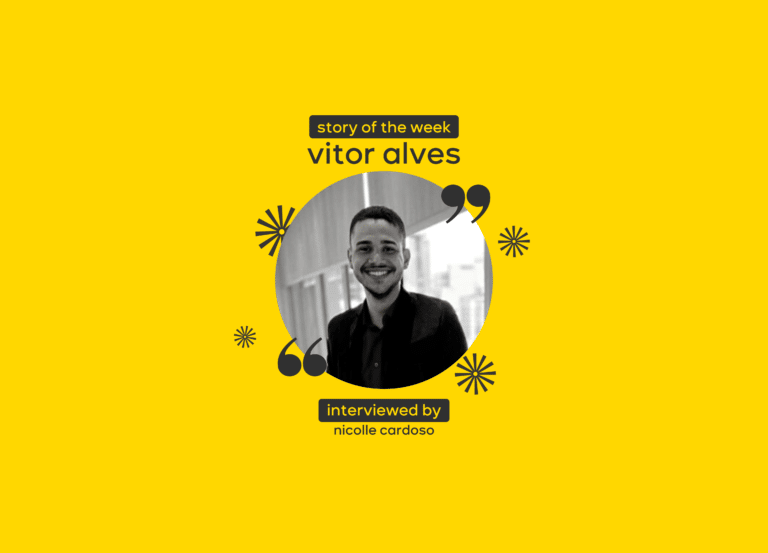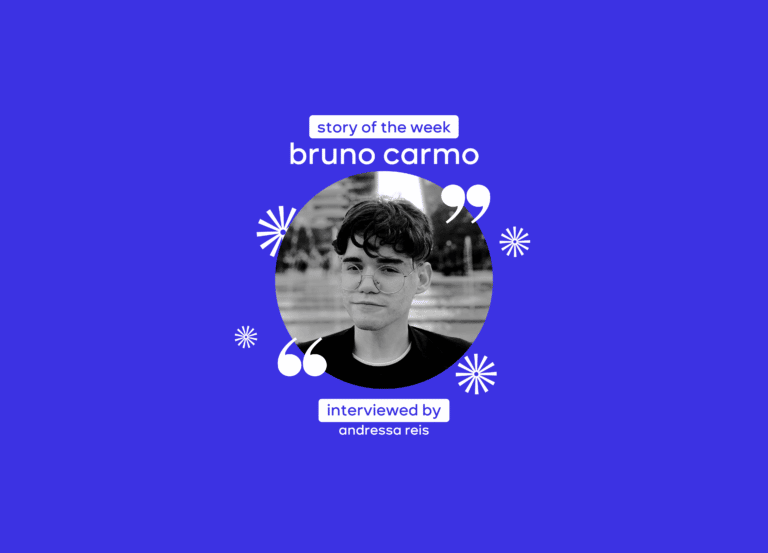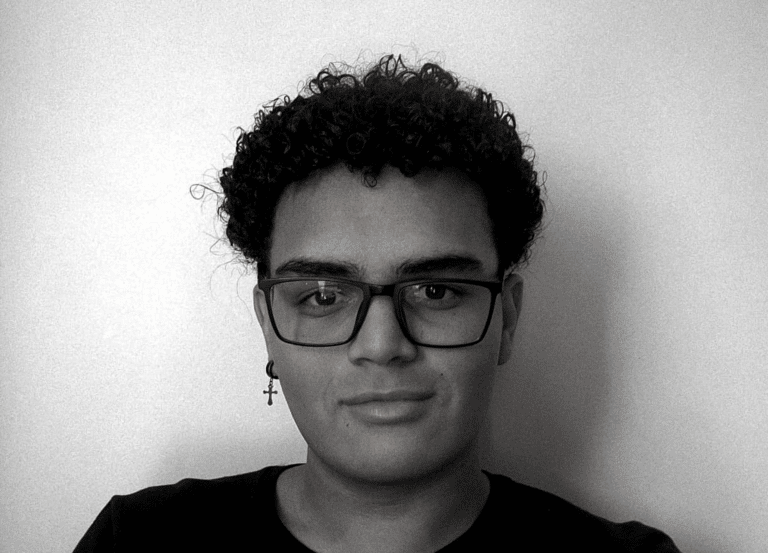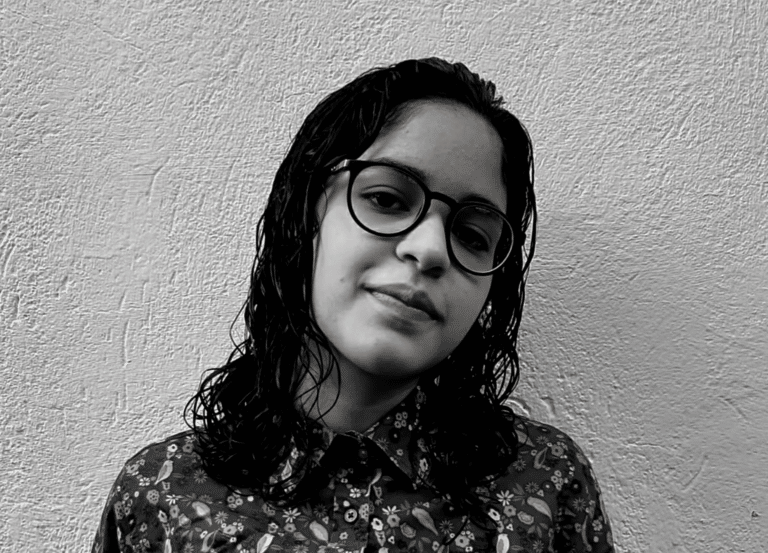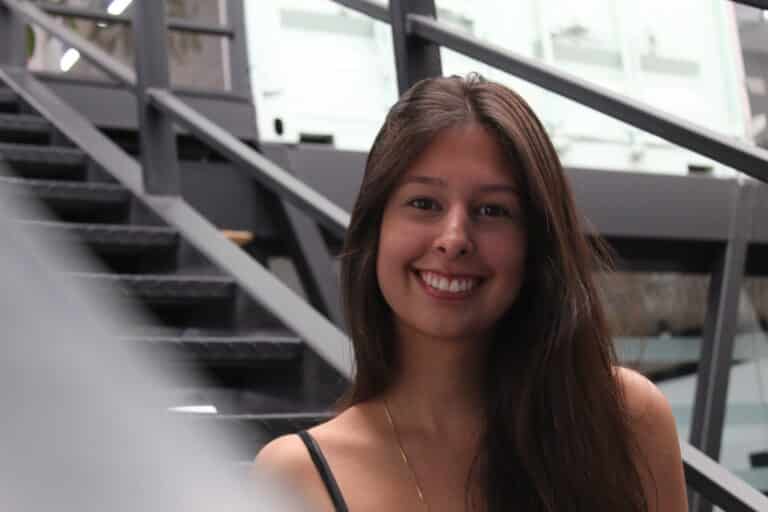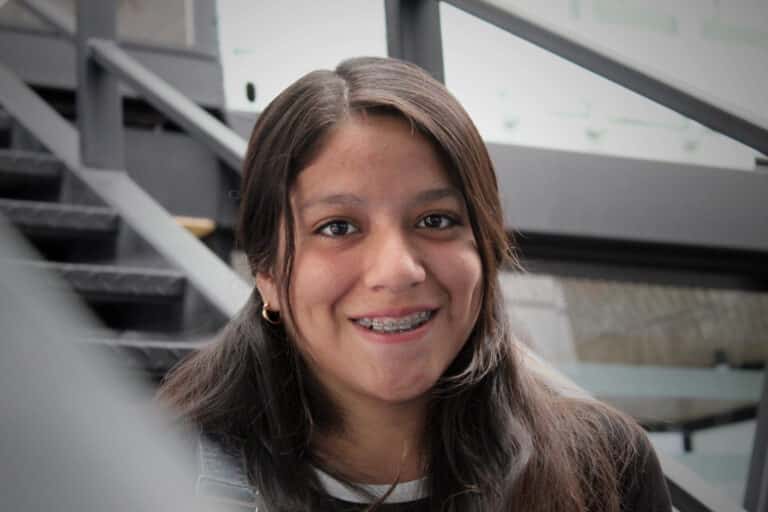Interview with Giullia Jaques, the founder of Absorvidas, who is fighting to end menstrual poverty

“Whenever I say that I’ve been through these situations, like domestic violence with my father and him leaving me when I was so young, and watching my friends get shot in the head… people act like it’s a hard thing to talk about. But I actually want to talk about it because people need to hear what I have to say about it. People need to hear what it’s like to be a 14-year-old girl working on the street alone and needing to go through these situations because otherwise, no one will do anything to change it.”
Giullia’s passion for social justice grew from her lived experience.
At age 14, as Giullia was sitting in math class at Colégio Pedro II, Brazil’s oldest public school located in the heart of Rio de Janeiro, a bullet came through the wall and hit her friend. Giullia was terrified to return to school, but two circumstances made her keep going.
First, she is from a peripheral community in Rio, where gun violence is a daily concern. Outraged with the normalcy with which her classmate’s shooting was being handled (specifically around the lie that she was not in the classroom but somewhere around the school), Giullia organized with her classmates to protest.
The second motive that drove her back to school was her family’s financial situation. To support her mother in paying rent after her father left their home, Giullia started making brigadeiros (Brazil’s infamous chocolate truffle) to sell at school. “There were days when I’d stay up until 1 am cooking 4 kg of brigadeiro and then get up at 4:30 am to go to school and sell them during breaks. I could barely stay awake in class because I was so tired, and every minute between classes, I was busy selling. On an average day, I’d sell 120 individual brigadeiros for $0.25 USD each.”
Sometimes Giullia went hungry because she didn’t have money for lunch, but usually, a friend stepped up and bought her a sandwich. Still, her grades dropped as a result of exhaustion.
“I don’t have money, and I also don’t have good grades.” But this didn’t stop her from going after opportunities. At school, she heard about Technovation Challenge – an app-building competition for girls – and joined a team. They placed 3rd, but more importantly: Giullia had discovered her networking superpowers. She spoke to a woman at the competition who invited her to participate in Google’s Mind the Gap Brazil – a coding program for the 100 most intelligent girls in the country.
After spending a weekend at the Google Headquarters, Giullia became known at her school as “that girl from Google,” and people began valuing what she had to say about public education and social justice. “The problem is that before being ‘that girl from Google,’ I was ‘that girl from a public school who started working at the age of 14 to support her family.’ My point is: I had things to say, rights to claim, way before Google.”
Giullia intentionally positions herself as a leader in breaking barriers to opportunities. “Most kids with me on MTG were from a wealthy background, as usual. In general, spaces like that are most likely not occupied by someone with my background, but this does not mean people from my community do not have things to say. I’m not fighting to give them a voice, they have a voice, and they have an opinion worth sharing. I’m fighting so no one in my community gets silenced just because they did not have the same opportunities I did.”
Since MTG, Giullia has led the way for girls in her community, showing them that they too can get to the most prestigious national and international youth programs – including Parlamento Jovem Brasileiro (Brazil), Gakko (Japan), Youth Ambassadors (USA) and Latin American Leadership Academy – and make a difference in their community.
At LALA’s Peru Leadership Bootcamp this past August, Giullia consolidated her passion for social justice and her networking skills through an idea inspired by a guest lecturer at the camp. “The speaker from X-runner asked us: ‘what things do you have access to that people in your community do not?’ And that was particularly hard for me at that time because the way I saw my background was negative. I was like, ‘yeah, I’m poor, I already don’t have access to many things.’ But, then I was like, ‘wait, I have access to water and toilets, that’s already a lot… and almost all the time, I have access to food and clothes. So… what else am I not thinking about? Period products!”
As soon as she got back to the hostel after the lecture, Giullia started doing some research on “who in Brazil is suffering from lack of quality healthcare when it comes to menstrual hygiene?” She found two books about the situation of incarcerated women. On Instagram, she texted Nana Queiroz, activist and author of “Presos que menstrual” (“Inmates who Menstruate”), who responded and helped her see reusable cotton pads as the best solution for the routines of life in prison. When she returned home, Giullia identified a women’s prison in Rio and found partners to supply the pads: the raw materials (cotton) would be donated by the period-underwear company Herself, and the sewing labor would be done by the inmates in the professional training program run by Fundação Santa Cabrini. In less than two months after the Bootcamp, Giullia had founded Absorvidas.
Now, in addition to developing this venture, Giullia is applying to U.S. colleges with support from the Opportunity Funds Program and raising money to attend LALA’s pilot academy in Medellin next February, though she is unsure about leaving her mom and two sisters since her family’s financial situation is still unstable. Giullia’s goal is to study Political Science and come back to Brazil after college to join movements that are fighting for social justice through civic engagement.
